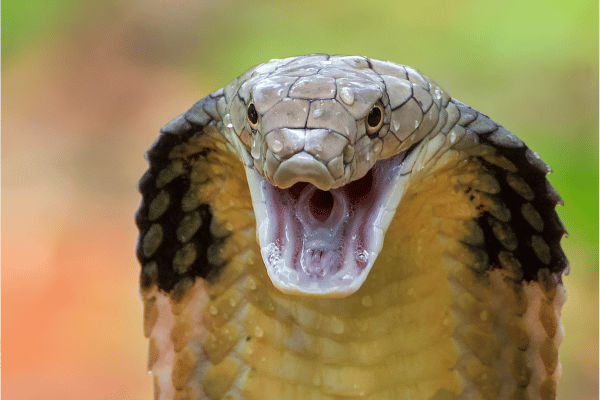Discover essential care tips for unconventional pets. Learn how to ensure the health and happiness of your unique companions with our expert insights.
Understanding Your Unconventional Pet’s Needs

Choosing unconventional pets requires deep understanding. Research their natural habitats to replicate conditions at home. This ensures their comfort and well-being. Transitioning pets to a new environment smoothly is crucial. Patience and consistency are key. Gradually introduce them to their new space, allowing time to adjust.
Nutrition plays a vital role in their health. Unlike conventional pets, these animals may need a specialized diet. This could include fresh produce, live insects, or specific commercial foods. Ensuring they receive all necessary nutrients is essential. Consult a veterinarian familiar with unconventional pets to create a balanced diet plan.
Mental stimulation and social interaction are important. Many unconventional pets are intelligent and need regular engagement. Provide toys, puzzles, and interact with them daily. This enhances their quality of life and strengthens your bond. Remember, understanding their unique behaviors and preferences is vital for a harmonious relationship.
Health and Wellness for Unique Companions
Regular veterinary care is crucial for unconventional pets. Finding a vet with the right expertise is essential. These animals often have unique health needs that require specialized knowledge. Schedule regular check-ups and be proactive about their health. Early detection of issues can make a significant difference.
Proper grooming is also important, depending on the pet. Some may need regular baths, while others require specific habitat maintenance to stay healthy. Research your pet’s specific grooming needs to avoid potential health issues.
Lastly, ensure their living environment is safe and secure. This includes proper enclosures, safe toys, and avoidance of toxic plants or dangerous household items. Creating a safe space for exploration and relaxation is key. Remember, a secure environment contributes significantly to their overall well-being.
Enhancing Unconventional Pets Care at Home
Bonding with unconventional pets can be rewarding. Start by spending time near their habitat daily. This helps them get accustomed to your presence. Use treats to encourage interaction, but always respect their space. Gradual trust building is essential for a strong bond.
Understanding their communication is key. Each species has unique ways of expressing needs and emotions. Observing their behavior closely can provide insights into their well-being. This understanding can greatly improve your care routine.
Finally, consider their need for companionship. Some species thrive with a partner or group, while others prefer solitude. Researching social requirements is crucial to prevent stress and loneliness. Providing the right social environment can enhance their happiness and health.
Legal Considerations for Exotic Pet Owners
Owning unconventional pets often comes with legal responsibilities. It’s vital to research and comply with local laws and regulations. Some species may require special permits or be restricted entirely. Ensuring legal ownership protects you and your pet.
Importantly, consider the ethical implications of pet ownership. Ensure your pet was sourced responsibly to avoid supporting harmful wildlife trade. Ethical considerations play a crucial role in the well-being of exotic animals and their natural habitats.
Additionally, be prepared for long-term commitment. Many unconventional pets have lengthy lifespans, requiring decades of care. Understanding this commitment is essential before bringing an exotic pet into your home. This ensures a fulfilling and responsible pet ownership experience.
Creating Enriching Environments for Unconventional Pets
An enriching environment is key for unconventional pets. Mimic their natural habitat as closely as possible. This includes appropriate substrates, vegetation, and hiding spots. Such environments encourage natural behaviors, promoting physical and mental health.
Incorporate enrichment activities that stimulate their minds. This could be anything from puzzle feeders to new objects to explore. Regular changes to their environment can prevent boredom and encourage active engagement.
Also, consider the lighting and temperature needs specific to your pet. Proper UV lighting, for example, is crucial for reptiles to metabolize calcium. Consistent and appropriate environmental conditions support their overall well-being and longevity.
Navigating Dietary Needs of Unique Pets
Understanding the dietary needs of unconventional pets is crucial. Many require a varied diet that replicates their natural food sources. Research and provide a balanced diet that meets all their nutritional requirements. This is fundamental for their health.
For some pets, feeding live prey is necessary. This can include insects, fish, or even small mammals. Ensure these food sources are safe and free from diseases. Handling live feed responsibly is important for your pet’s health.
Supplements may also be necessary to provide essential nutrients that might be missing from their diet. Consult with a veterinarian experienced in unconventional pets to determine what supplements are needed. Proper nutrition is key to preventing health issues and ensuring your pet’s longevity.
Behavioral Insights for Unconventional Pet Care
Understanding the behavior of unconventional pets is essential. Many exhibit unique behaviors that indicate their health and well-being. Observing these behaviors closely can provide valuable insights into their needs and preferences. This understanding is crucial for providing appropriate care.
Socialization varies greatly among different species. While some may enjoy interaction, others might be more solitary. Tailoring your approach to their individual needs and comfort levels is important for their overall happiness and stress reduction.
Enrichment activities that mimic natural behaviors can greatly enhance their quality of life. This includes foraging toys for birds or burrowing substrates for small mammals. Providing opportunities for natural behaviors supports mental health and well-being.
Unconventional Pets Care: Avoiding Common Mistakes

A common mistake in unconventional pets care is underestimating their needs. These pets often require more complex care than traditional pets. This includes specific dietary, environmental, and social needs. Educating yourself thoroughly is the first step to avoid such pitfalls.
Another oversight is neglecting veterinary care. Just like cats and dogs, unconventional pets need regular check-ups and vaccinations. Find a vet who specializes in your pet’s species to ensure they receive appropriate care.
Lastly, inadequate habitat can lead to stress and health issues. Ensure their living space is ample, secure, and enriched with features that stimulate their natural instincts. Regularly assess and upgrade their habitat as needed to keep them healthy and content.
Community Support for Unconventional Pet Owners
Joining communities of unconventional pet owners can be invaluable. These groups provide a wealth of knowledge and support. Sharing experiences and tips with fellow enthusiasts can enhance your pet care skills. Engaging in forums and social media groups dedicated to specific pets can offer insights and advice that are hard to find elsewhere.
Workshops and events can also be beneficial. They offer opportunities to learn from experts in the field. Attending such events can deepen your understanding of your pet’s needs and behaviors. It’s also a great way to connect with a supportive community that shares your interests.
Remember, every pet is unique. What works for one may not work for another. Being part of a community allows you to explore various perspectives and solutions. This collective wisdom can guide you in making informed decisions for your pet’s care.
Long-Term Commitment to Your Unconventional Pet
Caring for unconventional pets is a long-term commitment. These pets often have long lifespans, requiring years, sometimes decades, of care. It’s crucial to consider this commitment before bringing a pet home. Ensure you’re prepared for the journey ahead.
As your pet ages, their needs may change. This can include dietary adjustments, increased medical care, and modifications to their habitat. Staying informed and adaptable is key to providing the best care throughout their life.
Lastly, remember the joy and fulfillment these pets bring. The unique bond formed with an unconventional pet is deeply rewarding. Cherish the journey and the special moments you share. Your dedication and love make a significant difference in their lives.
Embracing the Journey with Unconventional Pets

Caring for unconventional pets is a path filled with learning and discovery. From understanding their unique needs to creating enriching environments, each step deepens the bond between you and your companion. It’s a commitment that spans the life of your pet, offering rewards and challenges alike. Remember, the key to successful unconventional pet care lies in education, patience, and adaptability.
We encourage our readers to engage actively with the community of unconventional pet owners. Sharing experiences and knowledge can illuminate aspects of care that are less obvious but equally important. Whether it’s through forums, social media, or local groups, the collective wisdom of fellow enthusiasts can be an invaluable resource.
Lastly, we invite you to share your own stories and insights on our platform. Whether you’re a seasoned expert or just starting, your journey can inspire and guide others. Let’s continue to support and learn from each other, ensuring our unconventional companions thrive. If you have questions or tips, please leave a comment below or visit our resources page for more information.
- Research and Understanding of Needs: Before adopting an unconventional pet, it’s crucial to research their specific needs, including habitat, diet, and natural behavior.
- Replication of Natural Habitat: It’s important to create an environment that closely mimics the animal’s natural habitat, considering appropriate temperature, humidity, and space.
- Specialized Diet: Many unconventional pets require a specific diet that may include a variety of fresh foods, insects, or specialized commercial foods.
- Mental and Social Stimulation: Providing activities that stimulate the mind and allow for social interactions appropriate to the species is essential to prevent boredom and stress.
- Specialized Veterinary Care: Having access to a veterinarian experienced in your pet’s species is essential for proper health care.
- Behavioral Knowledge: Observing and understanding the pet’s specific behaviors can help identify their needs and potential health issues.
- Safety and Accident Prevention: Ensuring the pet’s living environment is safe, with no risk of escape or access to potentially dangerous items.
- Legal Considerations: Checking local laws and regulations related to owning unconventional pets, including any necessary licenses or permits.
- Long-term Commitment: Recognizing that many unconventional pets have long life expectancies, which implies a prolonged care commitment.
- Community Support: Engaging with communities of unconventional pet owners can offer support, exchange of experiences, and valuable advice.

Join Marjorie Pearson at dwfocus.com, your guide in the pet parenting world. As an experienced animal behaviorist, Marjorie offers heartfelt advice for pet owners. Her expertise spans from nurturing kittens to understanding dogs’ playful antics. She’s passionate about enhancing the bond between pets and their humans through understanding and empathy. Discover Marjorie’s practical training tips and insights on dwfocus.com, enriching your journey as a pet owner. #4PawsAndOwners #MarjorieEarsonPetWhisperer #dwfocus







